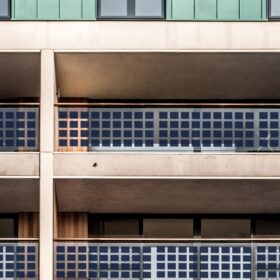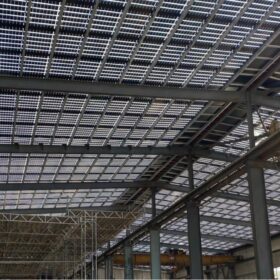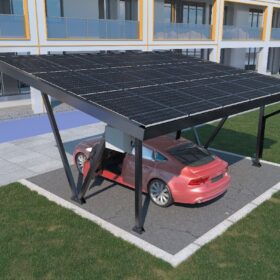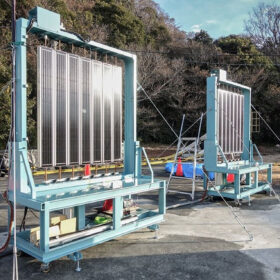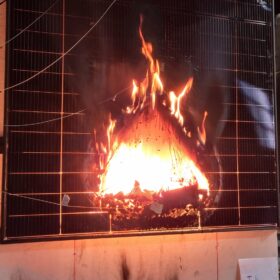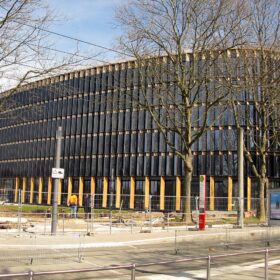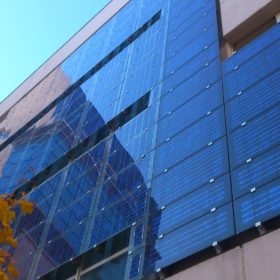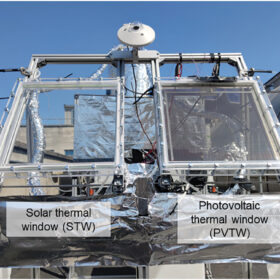Mitrex launches solar PV railing systems
The Canadian building-integrated PV manufacturer has launched semi-transparent and opaque solar PV railing systems for balconies or walkways, for retrofit or new buildings. The products are delivered with support bars, concealed cabling and a choice of mounting systems.
Testing shows BIPV using patterned glass performs better than expected
Scientists have compared conventional PV modules to self-made BIPV panels with thicker, patterned glass. They tested them both under standard conditions and outdoors under Korean summer conditions. Yield was found to be only 0.5% lower in the textured BIPV module.
Swiss startup launches 400 W transparent BIPV panels
Climacy, a building integrated PV manufacturer, has launched a new semi-transparent 400 W glass-glass panel that is suitable for use in roofs or facades in residential, industrial and commercial buildings. When used as a roof or wall componentt, the 20% transparent panels reportedly allow more natural light into interior spaces than conventional PV designs.
Roofit.Solar releases new BIPV panels with narrow roof coverage
Estonia’s Roofit.Solar has developed new building-integrated photovoltaic (BIPV) panels with an effective width of 470 mm, offering power outputs of 120 W or 180 W.
Mibet launches waterproof solar carport
The Chinese company said that its new product has a drainage edge that ensures complete waterproofing. It can purportedly withstand wind speeds of 45 m/s and a snow load of 1 KN/m².
Novel BIPV concept integrates louvers to enhance power production
Scientists have proposed a building-integrated PV system that integrates airflow to cool the panels and control room temperature. The system, which also acts as a shading device, can reportedly mitigate drops in power generation efficiency without additional energy consumption.
Assessing impact of fire on PV facades
An international research team has analyzed which factors contribute to fire accidents in PV facades and has found that the distance between the wall and the photovoltaic modules plays a crucial role. The scientists also said project developers should attentively consider what combustible materials are embedded in the wall cavity.
IEA-PVPS calls for harmonized testing, certification for building-integrated photovoltaics
The latest report from the International Energy Agency’s (IEA) Photovoltaic Power Systems Programme (PVPS) says the building-integrated photovoltaics (BIPV) industry is facing significant challenges due to a lack of clear testing and certification procedures. It says international consensus and the harmonization of certification processes will be crucial for widespread adoption of the technology.
Five-year testing show PV façades perform better than expected
Researchers in the Netherlands have analyzed the performance of PV façades during the period 2018-2023 and have found that these system may generate more economic value than conventional rooftop PV systems. Their analysis was based on financial, technical and environmental metrics
Photovoltaic-thermal window achieves 3.6% electrical efficiency, provides hot water at 50 C
Scientists have developed a window that uses a semi-transparent amorphous silicon PV layer. The group tested the system in London at different inclination angles and found it can achieve a maximum electrical efficiency of 3.6% and a maximum thermal efficiency of 17.6%.
